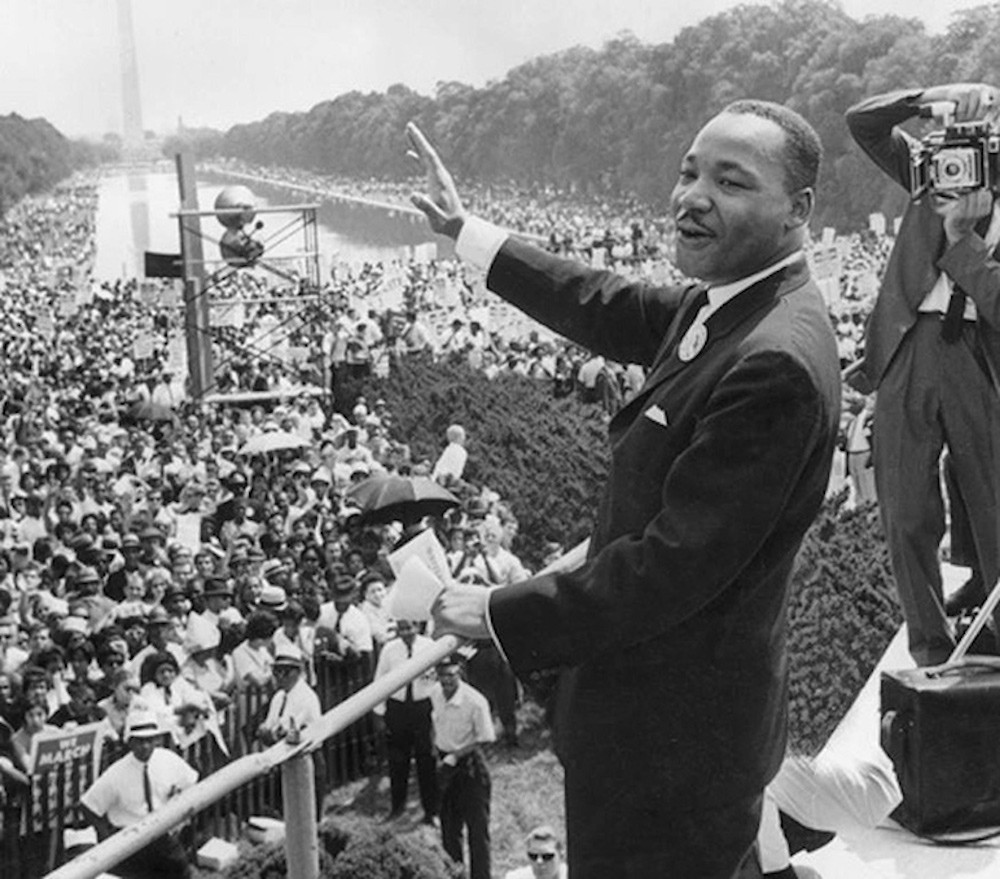In honor of the recent MLK holiday and Black History Month, we've decided to highlight a handful of films that illuminate the African-American experience from past to present, films that illuminate the journey from objects of history to subjects capable of telling their own stories and creating colossal works of art and cinema.
Body and Soul (1925) • Directed by novelist and filmmaker Oscar Micheaux, the silent Body and Soul tells the tale of a black escaped prisoner (Paul Robeson) who cons a church congregation into believing that he is a preacher, fully intent on bilking his followers of their savings. Micheaux is considered to be the first major African-American filmmaker. Body and Soul is Robeson's debut. Due to his outspoken criticism of the United States government, Robeson was blacklisted in Hollywood during the McCarthy era, effectively sending him into early retirement.
Guess Who's Coming to Dinner (1967) • Stanley Kramer's controversial flick revolves around a well-to-do white couple who are shocked and awed upon the discovery that their daughter is engaged to a black physician named John Prentice (Sidney Poitier). Gasp! What will the neighbors think? But on a serious note, how will an interracial couple be treated by their surrounding community?
By 1967, Poitier had become a mainstream star, successfully crossing the racial barrier that had long existed throughout Micheaux and Robeson's careers. Poitier's gentle and articulate presence coaxed the white majority to begrudgingly accept him as a bonafide ambassador of American culture. At the time of filming, interracial marriage was still illegal in 17 states. Poitier should be commended for using his star power to face the pressing social issues of this particular era.
Sweet Sweetback's Baadasssss Song (1971) • This is a seminal gem shot independently in just 19 days because the Hollywood studios were too scared to financially support it. The plot involves Sweetback, a male whorehouse performer with a notoriously large phallus, who escapes from police custody for a crime he didn't commit and races his way to the freedom of the Mexican border. This Melvin Van Peebles film helped spawn the Blaxploitation film movement. While many filmgoers considered these films to be silly, escapist B-movies, the black militant heroes of these films were a direct response to the passive, conformist demeanor of Poitier's onscreen characters.
In Blaxploitation, our protagonists didn't apologize for their race. They weren't subservient to any person of any color. And they definitely did not put up with racist ideologies of would-be oppressors. For many impressionable viewers, this was the first time they saw their own pent-up frustrations catapulted onto the screen.
Menace II Society (1993) • Hailed by some as a controversial portrayal of juvenile antisocial behavior, Menace II Society didn't seem so controversial to those disadvantaged communities who directly mirrored the film's stark depictions. In essence, this film is a coming of age tale. The coming of age tales of John Hughes were widely hailed as great cinematic achievements; audiences flocked to these films because they were fun, because they were safe. Because they were white suburban teens who had middle class problems; utter survival was never at stake.
And yet, Menace is hardly ever generalized as a coming of age story, even though it explicitly involves two teenagers who are trying to find their place in the world as they transition into adulthood. The violence ripped from national headlines was just too ugly for mainstream audiences to fall behind. It made them uncomfortable. It made them want to shut their eyes and ignore this jolting portrayal of a marginalized community. And that is the problem: Ignorance is bliss.
Bamboozled (2000) • As serious as Spike Lee can be, he is no stranger to humor, having made a musical comedy about the prejudices held between light skin and dark skin African Americans (School Daze). Bamboozled is another Spike Lee comedy, a satire, which challenges the stereotypical portrayals of African Americans that were prevalent in the mass media at the time. The plot chronicles the scheme of a frustrated black producer, trying to get fired, who develops an offensive blackface minstrel television show that instantly becomes a TV ratings phenomenon. Lee's observations are remarkably well-thought-out and sadly realistic. Although veiled in comedy, this film is a call to action for filmmakers and gatekeepers alike to change America's skewed view of African-American culture by producing positive and accurate depictions of blacks in all forms of visual media.
Selma (2014) • Nominated for two Oscars including Best Picture, Selma chronicles the struggles encountered by Dr. Martin Luther King, Jr. and the Southern Christian Leadership Conference activists who attempted to march from Selma, Alabama, to the state capital of Montgomery in order to secure equal voting rights for African Americans. However, as the devastating events in Ferguson have demonstrated, it is clear that institutional racial injustice still continues to infest our nation's façade of equality for all. Despite the downbeat odor of current national events, Selma is an uplifting embodiment of what the joyous human spirit can accomplish when like-minded individuals refuse to give up on their dreams.


